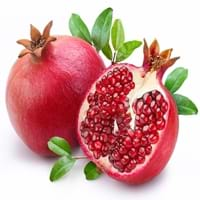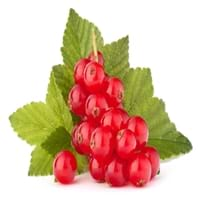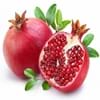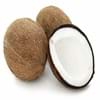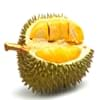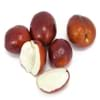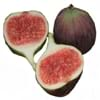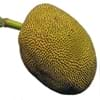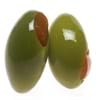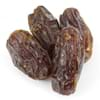Health Benefits
Cancer prevention, Heart care, Helps in cartilage regeneration, Improves stomach health, Increase in haemoglobin, Increases metabolic rate, Prevents constipation
Cancer prevention, Gout treatment, Heart care, Regulation of heart rate, Treatment of rheumatism
General Benefits
Boosts immune system, Controls blood pressure, Controls blood sugar levels, Digestive aid, Maintains healthy cholesterol level
Anti oxidant properties, Controls blood pressure, Cures fever, Digestive aid, Healing of wounds, Helps in weight loss, Strengthens bones
Skin Benefits
Anti-aging benefits, Skin rejuvenation, Treatment of acne
Brightens and lightens complexion, Reduces wrinkles, Treatment of acne
Hair Benefits
Prevents hair loss, Promotes longer and healthier hair, Treatment of dandruff
Protects hair
Allergy Symptoms
Abdominal pains, Anaphylaxis, Itching
Abnormally rapid heart rate, Anaphylaxis, Breathing difficulty, Hives, Itching, Swallowing difficulties
Side Effects
Allergic reaction, Cold, Breathing difficulty, Irritation, Swelling
Possibly unsafe during pregnancy
Best Time to Eat
Best if taken as a breakfast (or empty stomach), As a snack in the late afternoon, Eat the fresh ones, avoid mixing with any other foods, don't eat after meal., Morning time (before lunch)
Best if taken as a breakfast (or empty stomach), As a snack in the late afternoon, Don't eat after meal, Morning time (before lunch)
Vitamin B5 (Pantothenic Acid)
Vitamin C (Ascorbic Acid)
Vitamin K (Phyllochinone)
Calories in Fresh Fruit with Peel
Not Available
Calories in Fresh Fruit without Peel
Not Available
Calories in Frozen Form
Not Available
Not Available
Calories in Canned Form
Not Available
Not Available
Varieties
Balegal, Crab, Cloud, Francis, Freshman and Granada
Rovada, Stanza, Red Lake, Junifer and Jonkheer van Tets
Color
Dark red, Light pink-red
Red
Taste
Juicy, Sweet
Sour, Tart
Origin
India, Iran
Europe
Soil Type
Clay, Sand
Moist, Well-drained
Climatic Conditions
Cold, Dry, Hot
Cold
Facts about
- Pomegranate means apple with many seeds.
- It was called as the “apple of Grenada” in early English.
- In Hinduism, this fruit symbolizes prosperity and fertility.
- Pomegranate trees can live upto 200 years.
- The albino version of red currants known as white currants, are often sold as different fruit.
- Red currant tea is healthy substitute for coffee.
- There are more than 150 varieties of red currants.
Other Countries
Africa, India, Middle east, Pakistan
Belgium, France, Germany, Ireland, Italy, Netherlands, Poland, Portugal, Scotland, Spain, Sweden, United Kingdom
Top Importer
Europe
Germany
Top Exporter
India
Russia
Botanical Name
Punica granatum
Ribes rubrum
Synonym
Punica malus
Not Available
Subkingdom
Tracheobionta
Tracheobionta
Division
Magnoliophyta
Magnoliophyta
Class
Magnoliopsida
Magnoliopsida
Order
Myrtales
Saxifragales
Family
Lythraceae
Grossulariaceae
Species
P. granatum
R. rubrum
Generic Group
Pomegranate
Saxifrage
Difference Between Pomegranate and Red Currant
We might think that Pomegranate and Red Currant are similar with respect to nutritional value and health benefits. But the nutrient content of both fruits is different. Pomegranate and Red Currant Facts such as their taste, shape, color, and size are also distinct. The difference between Pomegranate and Red Currant is explained here.
The amount of calories in 100 gm of fresh Pomegranate and Red Currant with peel is Not Available and 56.00 kcal and the amount of calories without peel is 83.00 kcal and Not Available respectively. Thus, Pomegranate and Red Currant belong to High Calorie Fruits and Low Calorie Fruits category.These fruits might or might not differ with respect to their scientific classification. The order of Pomegranate and Red Currant is Myrtales and Saxifragales respectively. Pomegranate belongs to Lythraceae family and Red Currant belongs to Grossulariaceae family. Pomegranate belongs to Punica genus of P. granatum species and Red Currant belongs to Ribes genus of R. rubrum species. Beings plants, both fruits belong to Plantae Kingdom.
